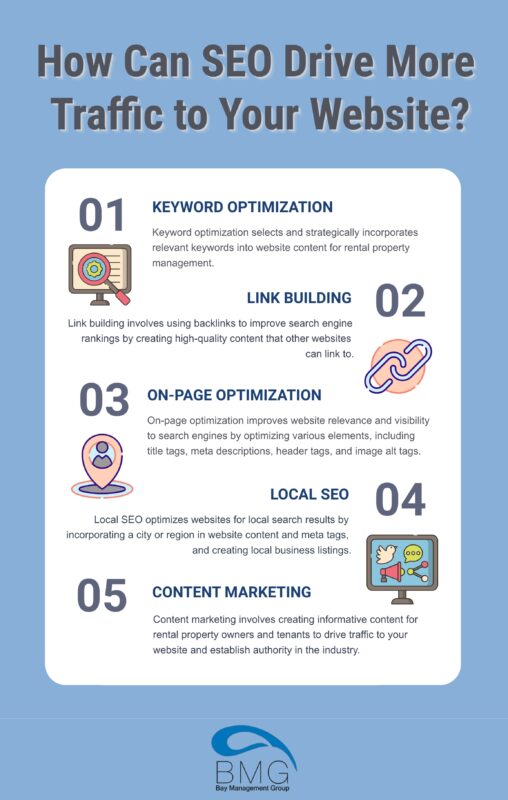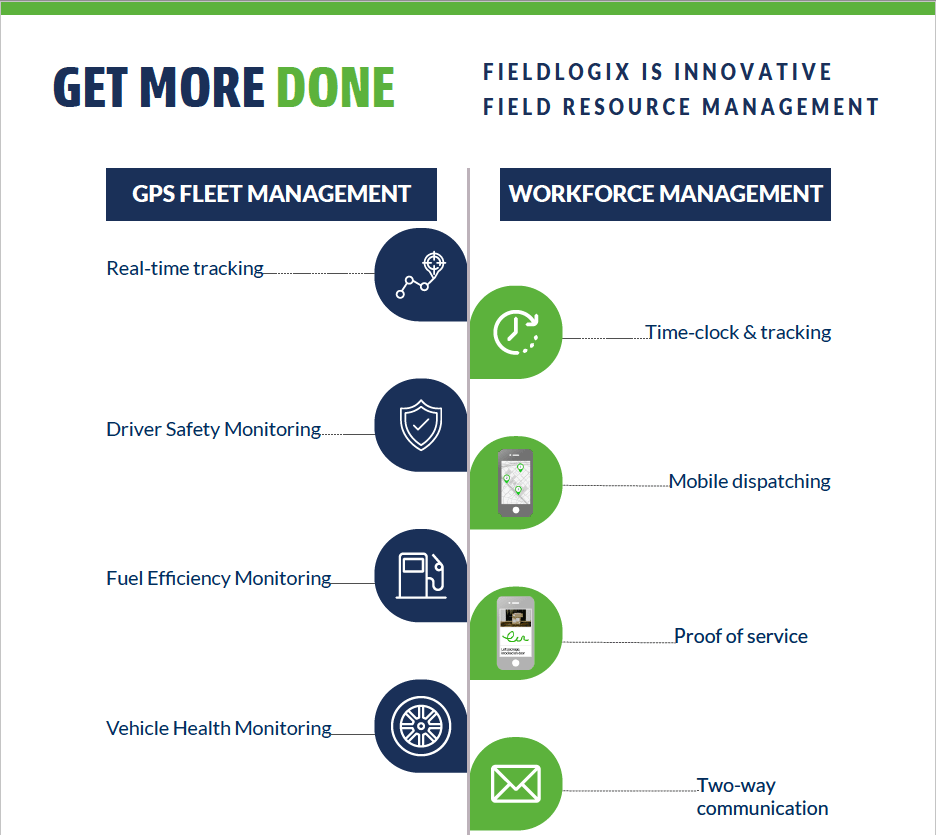Unlock the secrets to maximizing rental income and streamlining operations with these essential management tips for property owners.

Image courtesy of George Milton via Pexels
Table of Contents
- Introducing Rental Management
- Planning Your Approach to Rental Management
- Finding the Right Tenants
- Maintaining Healthy Tenant Relationships
- Managing Property Upkeep
- Dealing With Challenges
- Knowing the Legalities
- Financial Management for Rental Properties
- Using Technology to Your Advantage
- Reviewing and Improving Management Practices
- Summary and Final Tips
- Frequently Asked Questions (FAQs)
Introducing Rental Management
Are you curious about how to manage a rental property effectively? Well, you’ve come to the right place! Let’s dive into the world of rental management and discover why it’s essential for successful property ownership.
Managing a rental property involves overseeing various tasks to ensure that the property is well-maintained, tenants are satisfied, and operations run smoothly. Effective rental management is key to maximizing your investment and creating a positive living experience for your tenants.
From handling maintenance issues to fostering positive tenant relationships, there are several aspects to consider when embarking on the journey of rental management. Let’s explore some important strategies and tips to help you excel in this role.
Planning Your Approach to Rental Management
When you decide to manage a rental property, it’s crucial to have a solid plan in place to ensure success. By strategically approaching your rental management duties, you can lay a strong foundation for effective operations and optimal tenant relationships. Let’s delve into key strategies and best practices to guide you in this endeavor.
Setting Clear Goals
One of the initial steps in rental management is establishing clear goals for your property. These objectives can range from maximizing profits to providing a safe and comfortable living environment for tenants. By defining your goals early on, you can align your efforts and resources accordingly to achieve success.
Understanding Your Responsibilities
As a property manager, you take on a range of responsibilities that contribute to the smooth operation of your rental property. These responsibilities may include overseeing maintenance tasks, cultivating positive tenant relationships, and managing financial obligations. Having a thorough understanding of these duties is essential for effective rental management.
Finding the Right Tenants
When looking for tenants for your rental property, it’s crucial to create an appealing advertisement that attracts the right people. Make sure to highlight the key features of your property, such as the number of bedrooms, bathrooms, any amenities like a pool or laundry facilities, and the neighborhood it’s located in. Be descriptive but concise, and include clear, high-quality photos to showcase the property.

Image courtesy of www.optimiseaccountants.co.uk via Google Images
Conducting a Thorough Screening Process
Once you start receiving inquiries about your rental property, it’s time to begin the screening process. This step is essential to ensure that you find tenants who are reliable and responsible. Remember to ask for references from previous landlords or employers, check their credit history, and verify their income to make sure they can afford the rent. Additionally, consider conducting a criminal background check to further assess their suitability as tenants.
Maintaining Healthy Tenant Relationships
When you are a property manager, one of the most important aspects of your job is maintaining healthy relationships with your tenants. Building positive relationships with tenants can lead to better communication, increased tenant satisfaction, and ultimately, longer lease terms. Let’s explore some key strategies to help you cultivate strong tenant relationships.
Open Communication is Key
In any relationship, communication is vital. Make sure to establish open lines of communication with your tenants from the very beginning. Encourage them to reach out to you with any concerns, questions, or maintenance requests they may have. Respond promptly to their inquiries and show that you are attentive to their needs.
Showing Respect and Empathy
It’s essential to treat your tenants with respect and empathy. Understand that each tenant may have unique circumstances and challenges. Be empathetic and willing to work with them to find solutions that benefit both parties. Showing respect and empathy goes a long way in fostering a positive tenant-manager relationship.
Addressing Concerns Promptly
When tenants raise concerns or issues, it’s crucial to address them promptly. Whether it’s a maintenance issue, a noise complaint, or a request for information, respond in a timely manner. By showing that you are proactive and responsive, you demonstrate your commitment to maintaining a positive living environment for your tenants.
Creating a Welcoming Environment
Make an effort to create a welcoming and comfortable environment for your tenants. Simple gestures such as providing a clean and well-maintained property, organizing community events, or sending seasonal greetings can help foster a sense of community and belonging among your tenants.
Managing Property Upkeep
In order to ensure your rental property is well-maintained and attractive to tenants, it’s essential to stay on top of property upkeep. By following best practices and scheduling regular inspections, you can prevent minor issues from becoming major problems down the line. Here are some key tips to help you effectively manage the upkeep of your rental property.

Image courtesy of www.utopiacoliving.com via Google Images
Scheduling Regular Inspections
Regular property inspections are crucial to maintaining the condition of your rental property. By conducting routine inspections, you can identify any maintenance issues early on and address them promptly before they escalate. Inspections also give you the opportunity to ensure that tenants are following the terms of their lease agreement and taking care of the property.
During inspections, be sure to check for common maintenance issues such as leaky faucets, mold growth, HVAC system malfunctions, and structural damage. By staying vigilant and proactive in your approach to property upkeep, you can save yourself time and money in the long run.
Dealing With Challenges
One common challenge property managers face is dealing with late rent payments. When tenants don’t pay on time, it can disrupt the financial stability of the rental property. To address this issue, it’s crucial to have clear policies in place regarding late payments. Make sure tenants are aware of the consequences of late payment, such as late fees or eviction notices. Communication is key in these situations, so always stay in touch with tenants to understand their circumstances and work towards a solution.
Managing Conflicts
Conflicts can arise in any rental property, whether it’s between tenants or with maintenance staff. It’s essential to address conflicts promptly and professionally to maintain a peaceful and harmonious environment. When dealing with tenant disputes, listen to both sides impartially and try to find a fair resolution. For conflicts with maintenance staff, clear communication and setting expectations are essential. By addressing conflicts proactively, you can create a positive atmosphere and prevent tensions from escalating.
Knowing the Legalities
When it comes to managing a rental property, understanding the legal aspects is crucial to ensure a smooth and lawful operation that protects both the owner and the tenant. Let’s take a closer look at some key legal considerations in rental management.

Image courtesy of www.baymgmtgroup.com via Google Images
Understanding Lease Agreements
One of the foundational legal documents in rental management is the lease agreement. This document outlines the terms and conditions of the rental arrangement between the landlord and the tenant. A well-crafted lease agreement should include details such as the duration of the lease, rent amount, security deposit, rules for property use, and maintenance responsibilities. By having a clear and comprehensive lease agreement in place, both parties can avoid misunderstandings and disputes down the line.
Staying Current with Landlord-Tenant Laws
It’s essential for property managers to stay informed about the latest laws and regulations governing rental properties in their area. Landlord-tenant laws can vary from state to state and can cover a wide range of issues such as tenant rights, eviction procedures, rent increases, security deposit regulations, and property maintenance standards. By staying current with these laws, property managers can ensure that they are operating within the legal boundaries and avoid potential litigation or fines.
Financial Management for Rental Properties
One crucial aspect of managing a rental property effectively is creating a budget. A budget helps you plan for expenses, allocate funds for maintenance, set aside money for emergencies, and ensure you’re making a profit.
Tracking Income and Expenditure
To effectively manage a rental property, you must keep track of your income and expenses. This means recording all the money coming in from rent payments and any additional revenues, as well as documenting all your expenditures, including maintenance costs, utilities, and taxes. By maintaining detailed records, you can understand your cash flow, identify areas where you can cut costs, and ensure you’re maximizing your income.
Using Technology to Your Advantage
One way to make your rental property management tasks easier is by using property management software. This type of software is designed to help you manage different aspects of your rental properties all in one place. With property management software, you can easily keep track of important information like tenant details, rental payments, maintenance requests, and lease agreements.

Image courtesy of www.appfolio.com via Google Images
Imagine having all the information you need right at your fingertips, accessible at any time and from anywhere. Property management software can help you stay organized, save time, and reduce the chances of errors in your management tasks.
Reviewing and Improving Management Practices
Periodically reviewing and improving management practices is essential for ensuring the smooth operation of rental properties and enhancing tenant satisfaction. By consistently analyzing and enhancing the way you manage rental properties, you can identify areas for improvement and implement strategies to optimize rental operations.
Regular Assessment of Processes
One crucial aspect of reviewing management practices is to regularly assess the processes in place for managing rental properties. Take the time to evaluate the effectiveness of your current strategies and identify any areas that may need improvement. This could involve analyzing tenant feedback, assessing maintenance protocols, or reviewing financial management procedures.
Seeking Tenant Feedback
Engaging with tenants and seeking their feedback can provide valuable insights into areas where management practices can be enhanced. Encourage open communication with tenants through surveys or informal conversations to understand their needs and concerns. By listening to tenant feedback, you can make informed decisions on how to improve the overall rental experience.
| Topic | Description |
|---|---|
| Introduction | An overview of property management and the importance of optimizing rentals |
| Rental Market Analysis | How to conduct research on the local rental market to maximize profitability |
| Setting Rental Rates | Factors to consider when determining the appropriate rent for a property |
| Marketing Strategies | Effective ways to advertise and promote rental properties to potential tenants |
| Tenant Screening | The importance of thorough tenant screening processes to avoid issues with problem tenants |
| Lease Agreements | The key components of a lease agreement and how to protect your rights as a landlord |
| Property Maintenance | Tips for maintaining rental properties and keeping them in good condition to attract tenants |
| Financial Management | Managing rental income, expenses, and cash flow to ensure profitability |
Professional Development
Continuous professional development is key to staying abreast of evolving best practices in property management. Consider attending workshops, conferences, or training sessions to expand your knowledge and skills. Networking with other property managers can also offer valuable insights and ideas for improving management practices.
Implementing Innovative Solutions
Exploring and implementing innovative solutions can help optimize rental operations and streamline management tasks. Utilizing property management software, for example, can automate processes, track rental income and expenses, and simplify tenant communication. Embracing technology can enhance efficiency and overall effectiveness in managing rental properties.
By actively reviewing and improving management practices, property managers can create a more efficient and tenant-friendly environment, leading to increased tenant retention and overall satisfaction. Continual improvement is key to successful rental management and achieving long-term success in the property rental industry.
Summary and Final Tips
In this article, we’ve covered a lot of ground on how to manage a rental property effectively. Let’s go over some key points and final tips to help you become a successful property manager.

Image courtesy of fieldlogix.com via Google Images
Setting Clear Goals
First and foremost, it’s crucial to have clear goals for your rental property. Whether you aim to maximize profitability, maintain a certain standard of living, or attract specific types of tenants, setting clear objectives will guide your management approach.
Understanding Your Responsibilities
As a property manager, you have various responsibilities, including property maintenance, tenant relationships, and financial duties. It’s essential to understand these responsibilities and execute them diligently to ensure the smooth operation of your rental property.
Crafting the Perfect Rental Ad
When looking for tenants, creating a compelling rental advertisement can make all the difference. Highlight the unique features of your property and be transparent about requirements to attract reliable tenants.
Conducting a Thorough Screening Process
Screening potential tenants thoroughly is key to selecting responsible individuals who are likely to pay their rent on time and take good care of the property. Background checks, credit reports, and references can help you make informed decisions.
Scheduling Regular Inspections
Regular property inspections are critical for identifying maintenance issues early on and maintaining the overall condition of your rental property. By conducting inspections periodically, you can prevent minor problems from escalating into costly repairs.
Handling Late Payments
Late rent payments are a common challenge for property managers. To address this issue, establish clear payment policies, communicate expectations with tenants, and have protocols in place for handling late payments professionally and efficiently.
Managing Conflicts
Conflicts may arise between tenants, maintenance staff, or even between you and tenants. It’s essential to approach conflicts constructively, listen to all parties involved, and work towards amicable solutions that benefit everyone.
Understanding Lease Agreements
A well-structured lease agreement is crucial for outlining the rights and responsibilities of both landlords and tenants. Make sure your lease agreements are comprehensive, comply with local laws, and protect the interests of all parties involved.
Staying Current with Landlord-Tenant Laws
Keeping abreast of landlord-tenant laws is essential to ensure you operate within the legal framework governing rental properties. Make sure you stay informed about any changes in legislation that may affect your role as a property manager.
Creating a Budget
Financial management is a cornerstone of successful rental property management. By creating a budget that accounts for maintenance expenses, emergency funds, and profit margins, you can effectively plan for financial stability.
Tracking Income and Expenditure
Keeping detailed records of income and expenses is crucial for understanding the financial health of your rental property. By tracking your cash flow, you can identify trends, monitor profitability, and make informed financial decisions.
Property Management Software
Embracing technology can streamline various rental management tasks and improve operational efficiency. Explore property management software solutions that can help you manage tasks like tenant screening, rent collection, and maintenance requests more effectively.
By incorporating these tips and best practices into your rental management approach, you’ll be well-prepared to navigate the challenges and responsibilities that come with managing a rental property. Remember, consistent monitoring, adaptability, and a focus on tenant satisfaction are key to achieving success in rental management.
Frequently Asked Questions (FAQs)
Here are some common questions that property managers often have about managing rental properties:
What are some tips for property managers looking to improve rental operations?
To enhance rental operations, property managers should consider utilizing technology to streamline tasks, creating a budget to manage finances effectively, maintaining healthy tenant relationships, and staying updated on property management best practices.
Why is effective rental management important?
Effective rental management is crucial for the success of a property investment. It ensures that the property is well-maintained, attracts reliable tenants, fosters positive tenant relationships, and maximizes profitability.
How can property managers handle late rent payments?
Property managers should have clear policies in place for handling late rent payments. Sending reminders, implementing late fees, and communicating with tenants openly about the consequences of late payments can help resolve this issue.
What legal aspects do property managers need to be aware of?
Property managers should have a solid understanding of lease agreements, landlord-tenant laws, fair housing regulations, eviction procedures, and other legal matters related to rental properties to protect both the owner and the tenant.
How can technology benefit property managers in rental management?
Embracing property management software can help property managers streamline tasks such as tenant screening, rent collection, maintenance requests, financial tracking, and communication, leading to improved efficiency and organization in rental management.
Idaho Poperty Management
